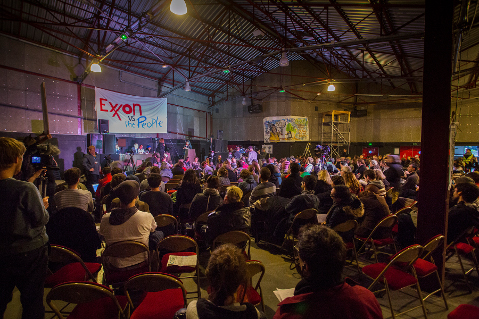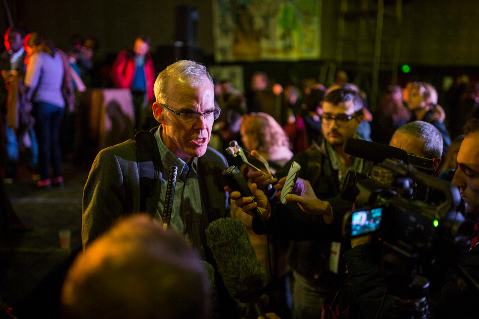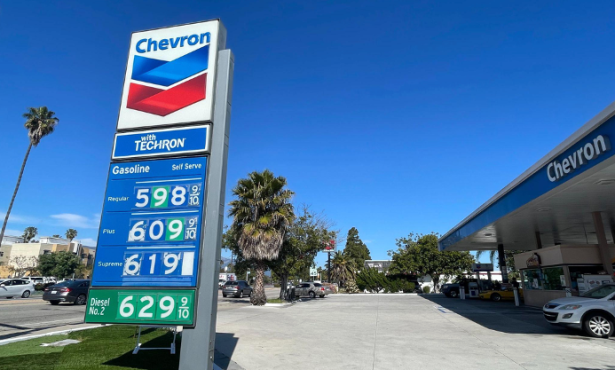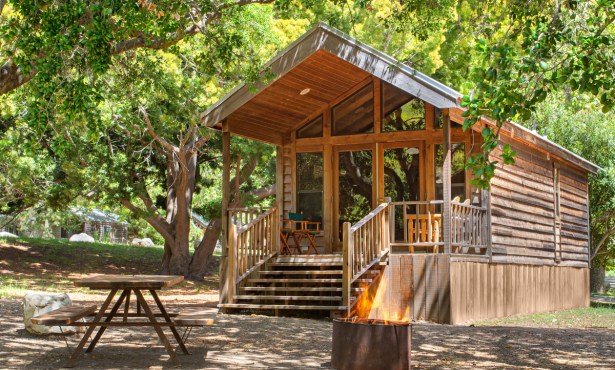Activists Hold Mock Trial of Exxon
Witnesses Give Testimony of Climate Effects from Oil Giant's Alleged Climate Crimes

Last Saturday, in the Paris suburb of Montreuil, away from the COP21 main venue in Le Bourget, a mock trial of Exxon took place. Organized by several environmental organizations, the theatrical and well-scripted trial led by two rock stars of the environmental movement, authors Bill McKibben and Naomi Klein, was performed before celebrity judges. About 250 people sympathetic to the environmental movement heard incriminatory evidence of the American energy giant’s alleged climate crimes.
Allegations based on recently uncovered papers formed the basis for this trial of the world’s largest private oil explorer; they indicate Exxon has lied to the public about climate change since the 1970s. Investigative journalists from InsideClimateNews.org and the Los Angele Times recently wrote that Exxon’s own top-notch scientists were well aware since the ’70s that fossil fuels were causing the warming of the Earth. In the mock trial, the Texas-based company was accused of covering up its own scientific results while actively discrediting the scientific consensus that was building at the time. Further, it has become even more firm it its stance over the last few decades.
The prosecutors started with the charge of potential climate crimes: “Crimes that extend beyond the pollution they are putting in our atmosphere, crimes against indigenous people, crimes against people of color, crimes against people who are already feeling impacts of climate change.”

One by one, witnesses testified. Some were citizens of countries vulnerable to already-occurring climate change impacts that are devastating, such as rising sea levels and thinning ice sheets. Others witnesses were climate scientists and energy analysts.
The witnesses’ statements were very personal, bringing to the audience first-person accounts of what many people read about from the comfort of their homes and offices. The climate scientist testifying in the trial, a glaciologist who has monitored Arctic ice conditions for more than a decade, said that listening to the testimony of a woman living in the Marshall Islands had really affected him. Another case in point was described by a young woman, dressed in colorful herder clothes, from a Sami family of reindeer herders. She explained how the warming caused rivers and lakes to become impassable. They lay between summer and winter pastures, and with the surface either unfrozen or too thin, the reindeer could not cross safely. Many young ones died because they could not follow their mothers across flowing rivers. Due to the more rapid freeze-thaw cycle nowadays, she went on, a thin layer of ice builds over the snow-covered pastures and prevent the reindeers from foraging. This young woman called herself a “climate child”.
Other witnesses testified of water raging through their homes during King Tides (extreme tides that were once infrequent but occur more often now), and how their family burial grounds were becoming covered with water, leading to the loss of their culture and identity.
A Nigerian activist talked about the damage done by Exxon to the inhabitants of the Niger Delta without their benefiting from the huge oil reserves being exploited. With a wink of support from Nigerian politicians, Exxon would profit while Nigerians were suffering serious health damage.
Klein devoted a series of questions to one witness who untangled the connections between Exxon (and other oil companies), climate skeptics, think tanks (such as the Competitive Enterprise and the Heartland Institute) and climate-denying U.S. government officials such as Oklahoma Senator James Inhofe. Through her line of questioning, Klein demonstrated that the product being sold by this group was “doubt,” as was the case with tobacco companies (Naomi Oreskes and Erik Conway convincingly demonstrated this in their book Merchants of Doubt). Regarding the doubts about climate science, the window of uncertainty has been closing rapidly, as the correctness of mainstream climate science has become more and more apparent and persuasive. Some U.S. politicians moved deliberately to find ways of keeping this window of uncertainty open, and they still do.
The two prosecutors, helped by a real-life lawyer with experience in this type of case, meticulously asked questions to prove that, had Exxon informed the public and not hid its scientific findings 25 years ago, the present climate impacts would have been more limited and the life of the vulnerable less affected. They also spent significant time communicating the feelings of people living in the exposed areas, their outlook on their future, their desperation, and their fears.

In his closing statement, McKibben called the crimes unforgivable and possibly one of the greatest corporate crimes ever committed on our planet. Klein concluded with: “It is Exxon’s crime that it believes money trumps life … there is no price that can be placed on the Marshall Islands, on Arctic cultures, and lives of our loved ones, and what we are able to pass onto our children.”
“The burden of proof now rests squarely on this corporation to somehow prove that the documents and memos [uncovered] don’t show what prima facie they seemed to demonstrate, namely a profound disregard for the safety of the planet and its people,” said actor Peter Sarsgaard, who was one of the judges.
“We render this verdict unanimously on 5th December of 2015, the hottest year yet measured on our Earth.”
While a group of motivated environmentalists can stage a mock trial without a defendant present, in reality the task is far more difficult. In order to build a case they must be able to demonstrate that a law has been broken. Collusion between private enterprise, dishonest scientists, shady think tanks, and corrupt politicians to hold back climate action may not be enough to convict a corporation, even if slowing down climate action means that hundreds of thousands of people are affected.
Nevertheless, some are calling for the U.S. Justice Department to probe the matter under federal racketeering statutes. Exxon is already under investigation by the State of New York for lying to its shareholders, or at least not disclosing the truth about possible risks to the value of their long-term investments. If the investigation shows that Exxon made misleading statements about climate science, statements that it knew from its own in-house research were scientifically not credible, that action alone could amount to some form of fraud.
Might this mock trial be a preview of trials to come?



